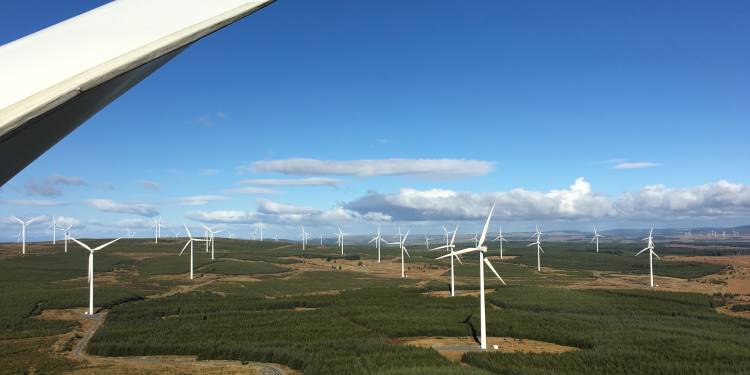British Universities to Buy Clean Energy from Wind Farms

Twenty top British universities have agreed an historic deal to buy green energy directly from wind farms for the first time.
The £50 million deal will see wind farms across Scotland and Wales supply renewable electricity to various universities up and down the country, including Newcastle, Exeter and Aberystwyth.
The deal is known as a power purchase agreement (PPA) and was arranged by the Energy Consortium and Squeaky Clean Energy. It is the first time that energy consumers from the public sector have grouped together to buy renewable electricity. Statkraft, the Norwegian owner of wind farms in the UK, will issue certificates to the universities matching the output of the windfarms, guaranteeing them renewable energy.
“We aim to source all of our electricity from zero carbon sources by 2025, and this power purchase agreement makes a significant contribution towards this goal whilst delivering financial savings and budget stability,” said James Rolfe, chief operating officer at Anglia Ruskin University.
“To support this commitment we aim to source all of our electricity from zero carbon sources by 2025, and this power purchase agreement makes a significant contribution towards this goal whilst delivering financial savings and budget stability.”
Richard Murphy, managing director of the Energy Consortium, said: “The corporate PAA market has long been touted as a means for larger organisations to procure renewable power and enable subsidy-free development. But to date, it has largely been the preserve of very large companies, requiring substantial commitments from buyers.
“By acting together in a collaborative approach facilitated by the energy expertise here at TEC, these institutions, whether large or small, have been able to navigate a previously inaccessible market. It allows members to protect budget, they know what they are going to pay for power over the term, but it also provides flexibility – because they are not committing 100% of annual baseload volume to the agreement.
“For example, by committing to 20% of baseload via the PPA, if a university subsequently outsources part of its campus, such as student accommodation and volume falls, or they add self-generation energy assets they have sufficient headroom to allow for future developments.
“The combined challenge facing the higher education and wider public sector is to secure reduced carbon emissions whilst saving money and I am delighted that the TEC team have secured both through this ground breaking deal.”
Read on our blog

With the government poised to implement tough new measures to...

Budget broadband provider TalkTalk has been notifying customers via email...

A year-long investigation by charity Citizens Advice has revealed a...

Education Secretary Nadhim Zahawi has announced a new commitment to...
